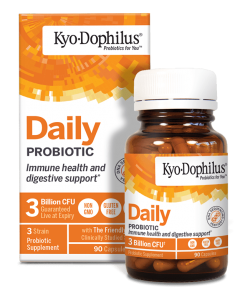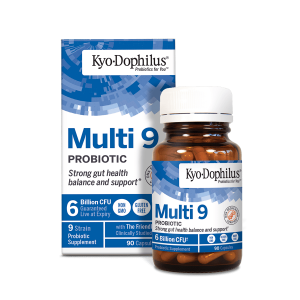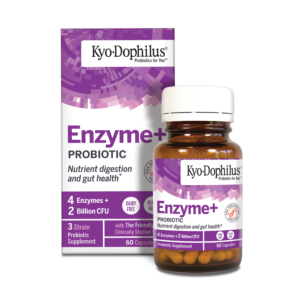Probiotics are important and, thanks to effective marketing and education over the past decade, it’s obvious to most people that these friendly bacteria provide a host of benefits for the gut, brain, immune system and more. But they’re not the whole story. As it turns out, prebiotics are just as important for whole body wellness. But what are prebiotics?
Prebiotics are non-digestible carbohydrates that serve as food for probiotics. Typically found in high-fiber foods such as whole grains, bananas, greens, onions, garlic, soybeans and artichokes, prebiotics are necessary for probiotics to grow and multiply[1]. The problem? Most people don’t get enough fiber, or the variety of fibers needed to feed a diverse community of bacteria, which is emerging as the key to a healthy microbiome.
Better Together
Prebiotics and probiotics are better together. But research also touts the benefits of prebiotics on their own. These include healthy weight management, supporting regular bowel movements and improving the bioavailability of minerals.[2] When paired with probiotics, prebiotics have been shown to improve the survival of probiotics as they pass through the digestive tract and support the growth of probiotics.
The good news is that it’s fairly easy to boost the diet with prebiotics, and that there are an increasing number of prebiotic supplements out there, as well as probiotic supplements that also contain prebiotics (because, indeed, they are better together). Unlike probiotics, they’re generally very stable and they are able to survive the body’s stomach acid and enzymes en route to the gut’s bacteria. That’s why you can find prebiotic ingredients in almost every food category, from bars and baked goods to frozen yogurt and ice cream.
While it is possible to supplement with two products–a prebiotic and a probiotic–keep an eye out for next generation products called synbiotics. Synbiotics contain both live bacteria and prebiotics together, to give the gut what it needs in one product. The idea is that by feeding the bacteria the food they love at the moment of supplementation, they can multiply, grow and support overall wellness. According to research from Johns Hopkins, children between ages 1 and 4 who drank milk fortified with both probiotics and prebiotics (a mix known as synbiotics) daily for one year got sick significantly less often than children who drank unfortified milk.
[1] https://www.mayoclinic.org/healthy-lifestyle/consumer-health/expert-answers/probiotics/faq-20058065
[2] https://www.ncbi.nlm.nih.gov/pmc/articles/PMC4648921
This article is for informational purposes only. This article is not, nor is it intended to be, a substitute for professional medical advice, diagnosis, or treatment and should never be relied upon for specific medical advice.




Share this Post